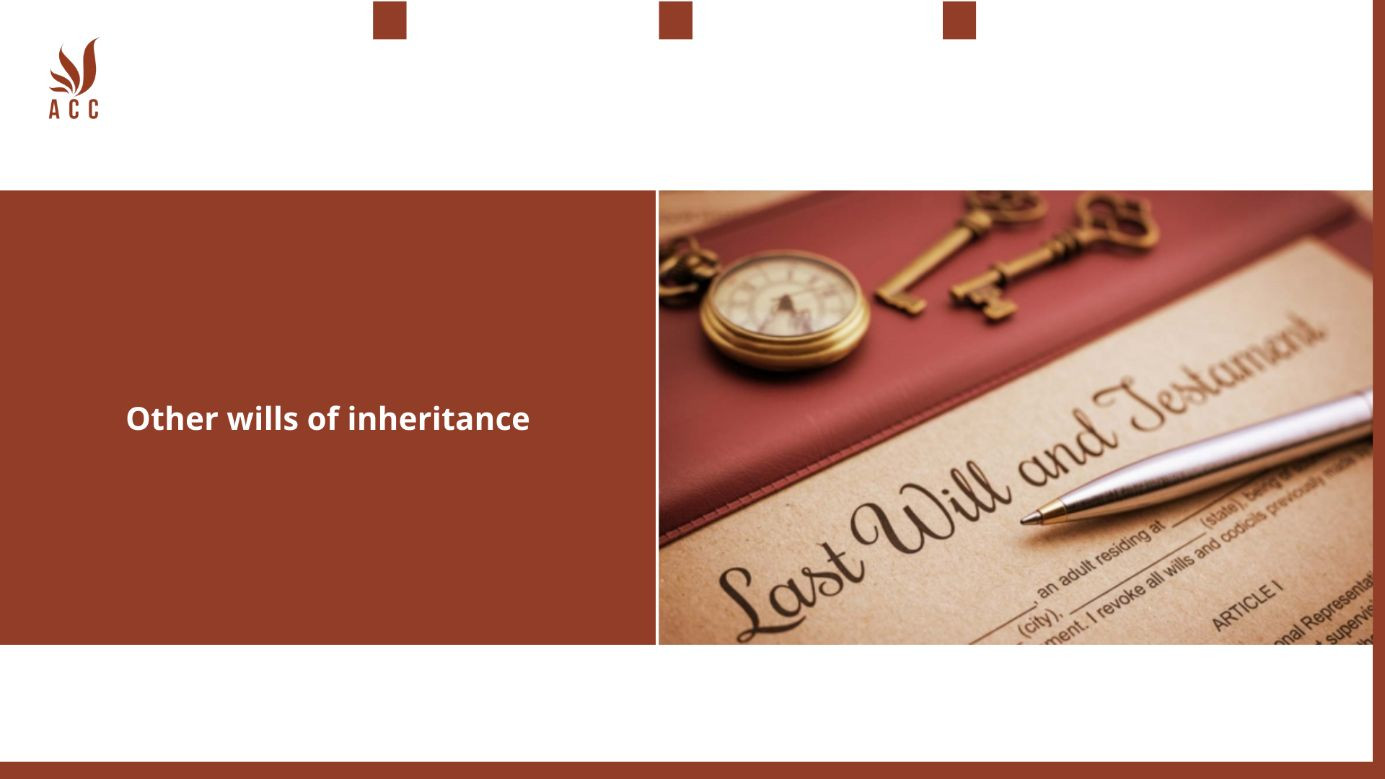It appears that you may be looking for information about different types or categories of wills beyond the standard last will and testament. While the last will and testament is the most common type of will used for estate planning and inheritance, there are some variations and additional types of wills that serve specific purposes. Here are a few:

1. Living Will (Advance Healthcare Directive):
A living will is not related to inheritance but rather addresses a person's healthcare preferences in the event they become unable to make medical decisions. It outlines the individual's wishes regarding medical treatment, resuscitation, and end-of-life care.
2. Pour-Over Will:
A pour-over will is often used in conjunction with a revocable living trust. It is a will that "pours" any assets not already placed in the trust at the time of the testator's death into the trust. This ensures that all assets are eventually distributed according to the trust's terms.
3. Testamentary Trust Will:
Some individuals use a will to create one or more testamentary trusts. These trusts are established upon the testator's death and can be used to manage and distribute assets to beneficiaries in a specific manner outlined in the will.
4. Conditional Will:
A conditional will includes certain conditions or requirements that must be met for the will's provisions to be carried out. For example, a testator might leave assets to a beneficiary only if they meet specific criteria, such as completing a college degree.
5. Mutual Will:
Mutual wills are typically created by spouses or partners. These wills mirror each other and contain mutual agreements about how assets will be distributed. They are often used to ensure that both partners' wishes are respected even after one partner's death.
6. Joint Will:
Joint wills are created by two individuals, often spouses, in a single document. These wills outline how their joint assets will be distributed after both parties have passed away. They can be binding on both individuals and limit changes after the first person's death.
7. Holographic Will:
A holographic will is a handwritten will created and signed by the testator without the need for witnesses in some jurisdictions. It may not need to meet the same formal requirements as a typed will but still must express the testator's intentions clearly.
8. Nuncupative Will (Oral Will):
A nuncupative will is an oral will, spoken by the testator, often in emergency situations when a written will is not possible. These are typically accepted only in limited circumstances and jurisdictions.
9. When using ACC Law Firm's testament, entrepreneurs will receive
10. Q&a
What is a joint will, and how does it differ from a standard will of inheritance?
Joint Will: A joint will is a single will created by two individuals, typically spouses, outlining how their combined assets should be distributed after both of them pass away. It differs from a standard will because it addresses the joint estate of two people and is often used when spouses have nearly identical wishes for asset distribution. However, joint wills can be inflexible and may not allow for changes after one spouse's death.
What is a holographic will, and when is it used for inheritance purposes?
Holographic Will: A holographic will is a handwritten will made entirely by the testator (the person creating the will) and signed by them. While holographic wills are legally recognized in some jurisdictions, they are generally subject to stricter scrutiny due to the potential for ambiguity or fraud. They are typically used when someone wishes to create a will quickly without legal assistance.
What is a living will, and how does it relate to inheritance?
Living Will: A living will, also known as an advance healthcare directive, is not directly related to inheritance. Instead, it is a legal document that outlines an individual's preferences for medical treatment and end-of-life decisions in case they become incapacitated. It helps guide healthcare decisions but does not address the distribution of assets after death.
What is a pour-over will, and how does it work with other estate planning documents?
Pour-Over Will: A pour-over will is a type of will used in conjunction with a revocable living trust. It ensures that any assets not already included in the trust during the individual's lifetime are "poured over" into the trust upon their death. This allows for the efficient management and distribution of assets, avoiding probate for those assets held in the trust.
Nội dung bài viết:






Bình luận